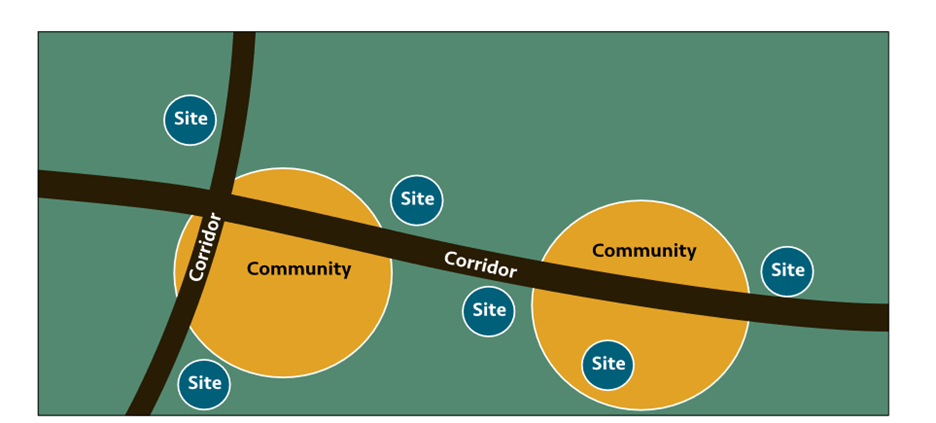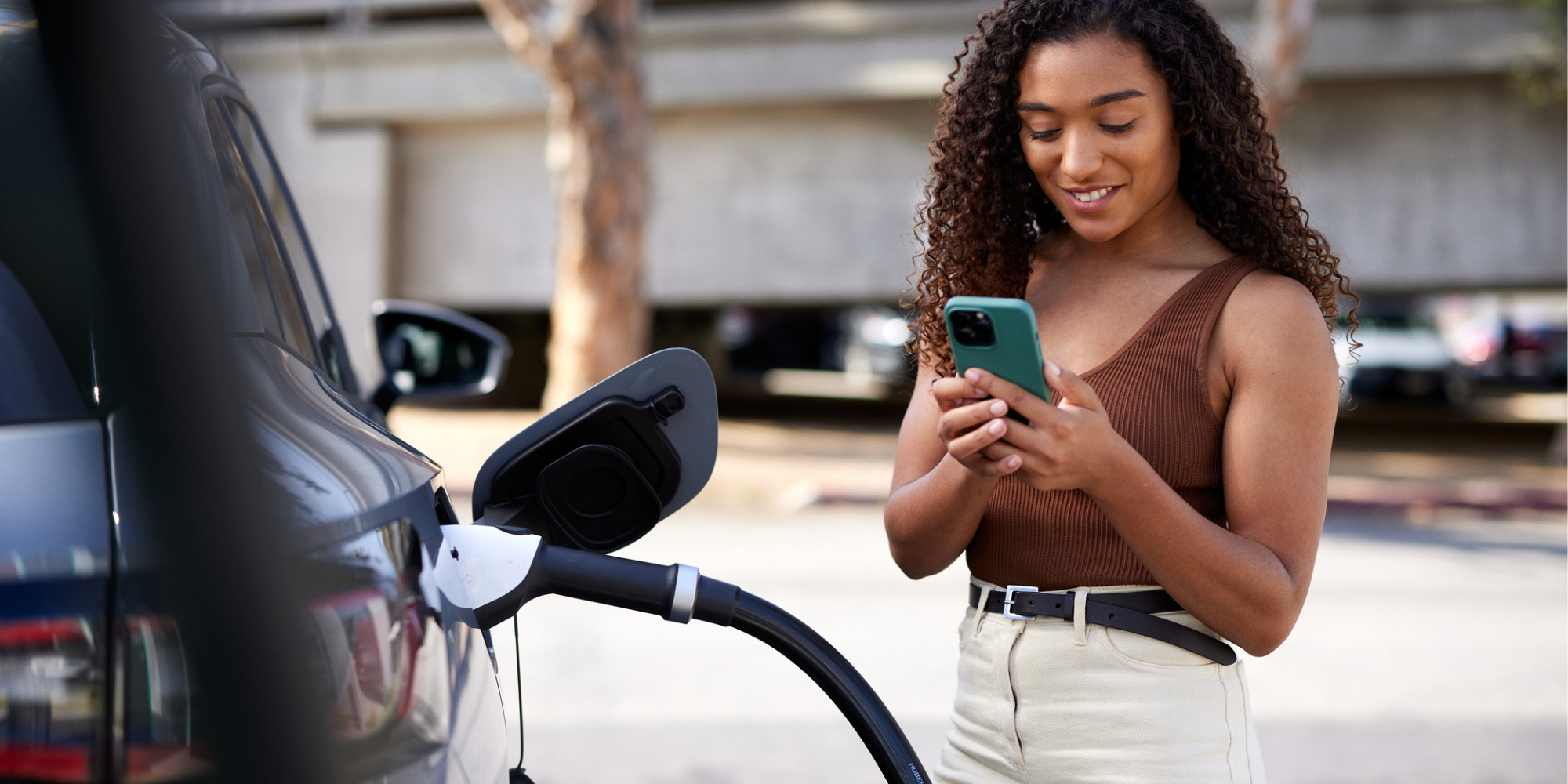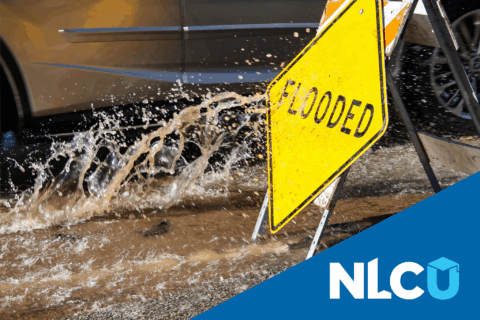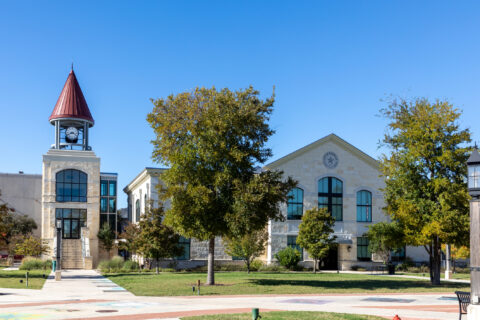Update as of 3/20:2023: On Tuesday, March 14, 2023, the Department of Transportation announced the Notice of Funding Opportunity (NOFO) for the Charging and Fueling Infrastructure (CFI) program. Learn more about this program and upcoming webinars here.
New federal community electric vehicle (EV) charging grants will soon be available to help communities add new EV charging locations as the number of EVs on the roads grows.
The U.S. Department of Transportation (USDOT), Department of Energy and new Joint Office of Energy and Transportation (JOET) announced a slate of standards to make EV charging in the U.S. consistent and dependable for EV drivers. These standards will address common complaints like differences in EV plugs styles and EV chargers not being consistently available.
They also detailed the imminent release of $700 million in funding available from the new Charging and Fueling Infrastructure (CFI) grant program that communities can apply for. The grants from the CFI program can go directly to local governments for the installation and maintenance of EV charging infrastructure for up to five years after the installation is complete. Local governments can apply individually or with groups of eligible partners for this program.
This announcement is just the beginning of the $2.5 billion CFI program, which will be divided equally into two $1.25 billion grant categories:
- Corridor Charging grants must be used along state-designated alternative fuel corridors and their communities to install EV chargers and hydrogen/propane/natural gas fueling infrastructure.
- Community Charging grants can be used to install EV charging and alternative fuel in public places such as schools, grocery stores, parks, libraries, apartment complexes and everywhere else Americans live and work. USDOT will prioritize Community Charging grants in rural areas, low- and moderate-income neighborhoods and communities with low ratios of private parking or high ratios of multiunit dwellings.
Interested in Applying? Start Here.
Identify which grant to apply for
Municipal officials should begin by identifying which type of EV charging grant they are eligible for and which would be most beneficial for their community. Because Corridor Charging grants must be used along designated alternative fuel corridors that will stretch across the country, the first step for potential applicants is to know if a city is on the designated corridors. Using the alternative fuel corridor map, municipalities can easily identify if they are along a designed corridor. If they are, a corridor community charging grant is an option; if your city is not on a designated corridor, the city is only eligible for the community charging grants.
Figure 1: The Three Levels of EV Charging for Planning

Community Charging grants are a great option for any city, town or village interested in EV charging grants because they can be located throughout your community in publicly accessible areas. Applying Justice40, applications for Community Charging grants will prioritize low- and moderate-income neighborhoods, communities with low ratios of private parking or high ratios of multi-unit dwellings, and rural areas.
Some communities may want to prioritize site locations that serve both the Corridor and the Community by being both adjacent to the designated corridor roads and located near community spaces that would encourage resident use. Some communities may look at main street areas with restaurants and shopping, so drivers have somewhere to go as they wait, or parks or walking trail parking areas to serve both drivers stretching their legs or residents exercising. Read more about site selection here, and plan to read the CFI notice of funding opportunity as soon as it is available here.
Determine your project type
Any application for a CFI grant should only cover eligible uses. The guidance on the program explains what types of projects are eligible with these examples.
Both Community Program and Corridor Program projects may cover the following:
- Development phase activities, including planning, feasibility analysis, revenue forecasting, environmental review, preliminary engineering and design work, and other preconstruction activities.
- Acquisition of real property and related construction and reconstruction costs for the installation of publicly accessible charging and fueling infrastructure for vehicles.
- Installation of traffic control devices located in the right-of-way to provide directional information to infrastructure acquired, installed, or operated with grant funds.
- Contracting with a private entity for operations and maintenance costs of infrastructure directly related to vehicle charging and fueling.
- Propane fueling infrastructure for medium- and heavy-duty vehicles.
For the Community Program only, eligible projects also include:
- Projects that are expected to reduce greenhouse gas emissions.
- Projects that are expected to expand or fill gaps in access to publicly accessible charging and alternative fueling infrastructure.
- Projects that may conduct educational and community engagement activities to develop and implement education programs through partnerships with schools, community organizations, and vehicle dealerships to support the use of zero-emission vehicles and associated infrastructure.
Confirm your city has a SAM.gov identifier
For a successful application, a city will need access to the System for Award Management (SAM) portal.
Prior federal grant applications Before April 4, 2022, federal grant applications required municipalities to provide a DUNS number, but the process changed. Currently, the SAM.gov portal provides cities with a Unique Entity ID, a 12-character alphanumeric ID assigned to each municipality. If your city, town or village is already registered with SAM.gov, a UEI number has already been assigned and is available at SAM.gov.
If your municipality does not yet have a UEI number, the federal government encourages entities to apply for one at least four weeks prior to applying for a federal grant. Entities that need a UEI can apply at SAM.gov.
Coordinate with your utility, state, regional and community partners.
Municipal leaders interested in applying for the Discretionary Grant Program for Charging and Fueling Infrastructure should be sure they are coordinating with partners and experts available to them.
For example, your utility partners can be highly supportive in site selection and navigating state processes. Additionally, your city will want to reference any metropolitan planning organization (MPO) or State Department of Transportation EV charging plans – especially your state’s USDOT-approved National Electric Vehicle Infrastructure (NEVI) program plan that will identify priority corridors. Local community groups and organizations can be included in the EV charging conversation from the beginning.
This community engagement can serve to ensure that EV infrastructure is placed appropriately. Engagement will also allow municipal leaders to understand community priorities when it comes to transportation infrastructure more broadly and understand where the greatest need and impact will be. In some communities, electrifying public transportation, investing in complete streets, and upgrading sidewalks may take priority.
With more than three million EVs on the roads today, communities have an opportunity to begin to plan and add EV charging with the CFI program that matches that growth.
At the upcoming Congressional City Conference, NLC will offer a session to dig deeper into the CFI program if you want to learn more and ask questions.
Find Out More
- EV Charging: A Primer for Municipal Officials
- Charging Forward: A toolkit for planning and funding rural electric mobility infrastructure
- White House EV Announcement Fact Sheet
- Charging and Fueling Infrastructure Landing Page
- Final NEVI Minimum Standards
- Build America, Buy America Implementation Plan











